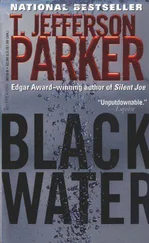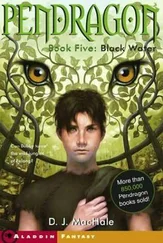Each building seemed an oddity, as his car sped by. They passed one block where every floor had a balcony jutting out at a different angle and each balcony and roof above it had greenery in profusion, creepers and climbers and palms. He supposed it was intended to beautify the concrete beneath, but instead it looked as though the building was a remnant in a post-apocalyptic landscape where the humans had all fled, a jungle was reclaiming the city and it would not be surprising if pumas stalked the streets.
Then they were pulling up at the hotel he was booked into for the first few days of his stay, while an apartment was got ready, and a liveried doorman opened his door with a white-gloved hand, bestowing a smile. A porter hastened to lift his bag from the boot and as he got out of the car he was momentarily dazzled by the light striking the silent spin of the glass revolving door that swept him through to an air-conditioned lobby. Inside, a young woman glided towards him with a tray on which there was a damp towel rolled tightly in a cylinder shape and a perspiring glass of mango juice. He thought of the airless guesthouse he had stayed in as a young man, thirty years ago, and reflected that there were a few benefits to being middle-aged and a desk-based senior economic analyst rather than a young undercover operative.
The Institute’s Jakarta office was in a modern slab of a building in Setiabudi. He got a cab there to start off with, when he was staying at the hotel, but at the end of his first week he moved to an apartment that was walking distance from the office. He spent a lot of time in the apartment at first: it was a relief to be in a calm white box; silent, entirely his. His job was to acclimatise, read a lot of reports, make contact with the local clients and with government officials: he would be befriending civil servants rather than gangsters this time around. President Soeharto, Father of Development, had been in power for thirty-two years, but there was no sign that he, or the many relatives of his who held one office or another, would be vacating their seats any time soon.
He didn’t rush to prowl the streets in the way he had done on his last visit. He was an old man now. Instead of running with the youths or hanging out in expat bars talking to journalists, he worked at the Institute’s office or stayed at home in the white apartment, where a cleaner came daily and the brown leather sofa was cracked but pliant. For the first few weeks, he spent almost every evening there, doing his homework, watching the news and studying reports of how the Asian economic crash had come about. He brushed up his Indonesian, which came back to him with pleasing clarity. He continued to plough his way through a Dutch study of Prelambang Jayabaya : ancient prophecies had their uses at a time like this, in a country like this. He learned the Pancasila principles, which the politicians quoted endlessly. He took the paperwork part of his job very seriously. That was what he was, now.
Two weeks after his arrival, one Saturday, when he was reading on the brown leather sofa in the white apartment with the air conditioning on full, the telephone rang. It was Francisca. It was breakfast time in Amsterdam and he guessed, as soon as she spoke, that she had not slept well.
‘Hi. .’ she said, her voice still slurred with sleep. He pictured her standing in the kitchen in her lemon-yellow robe, waiting for the coffee to brew — she drank it black and piping hot, pouring small amounts each time into her favourite blue demitasse. He felt certain she had decided to call him on impulse.
‘Hi. .’ he replied, thinking of her thin frame and the belt on the robe pulled tight, the tumble of curls on her head. He felt the tug of familiarity. He had liked to hold her head against his chest in bed — or was it simply that she had liked to rest her head on him and he had put his hand there, on the back of her head, instinctively, because it was expected? All he knew was that in that moment, he felt the allure of that — the picture and feeling of it seemed suddenly clear across the thousands of miles that separated them. A relationship as long as theirs could not help but have a half-life, however certain they both were that it was over.
‘How’s it going. .?’ she asked, softly, and they talked of nothing for a while. She had woken lonely and had rung to comfort herself with the sound of his voice. ‘How’s work?’ she asked, but he could hear her moving around the kitchen and knew she wasn’t really listening to what he was saying any more than she had done when they were together, any more than he had done to her. That was what it was like, after a few years: you could conduct a relationship on automatic pilot, thank God.
‘Local firms are really suffering now,’ he said, just making conversation. ‘The devaluation’s showing up in their balance sheets, can’t get rid of their own currency fast enough, buying what few dollars they can while they can buy any. It’s bad.’
‘Mmmm. .’ replied Francisca. She had, over the years, perfected the art of the non-committal, encouraging noise that kept him talking while her mind was elsewhere. ‘Always is, though, isn’t it?’ He heard her take a sip of coffee.
‘This one’s different,’ he replied. ‘Nobody can buy anything imported any more, think what that means.’
‘Mmmm, really?’
Francisca worked as a personnel manager for a medium-sized clothing import business out at Muiderpoort. She knew plenty about how currency rates affected businesses, but he had never been able to persuade her to debate the wider picture with him. It had always annoyed him that a woman as intelligent as her didn’t take more interest in global affairs, but then people who lived in countries with hard currencies couldn’t grasp it: the idea that your job, your home, your life could be as vulnerable to currency changes as they would be to a tidal wave that engulfed your house in water.
‘It’s Christmas soon. I miss you,’ she said then, a catch in her throat, and he knew that was a lie, and that he didn’t miss her either. It was just the ghosts of their former selves on the phone to each other, mimicking the past.
It wasn’t Christmas in Jakarta, and by January, you needed more than eleven thousand rupiah to buy yourself one single dollar.
Each morning, Harper rose with the dawn and set off early — the hot walk to the office was infinitely preferable to the claustrophobia of being stuck in a car. It was either wet or dusty, rarely sunny. The anti-government or pro-government protest demos were mostly further north, on the Hotel Indonesia roundabout or Merdeka Square. The old Hotel Indonesia was showing its age and era; it had been declared a national heritage site. Sixties architecture wasn’t chic and modern these days but a relic in need of preservation. What it really needed was a big multinational to come in and modernise and restore it, but who was going to do that now, with everything so unstable?
There was a six-lane dual carriageway just before his office. Before he crossed it, he would stop by a food stall on the corner, outside a blue shopping mall, and eat standing up, then buy all the newspapers from the stand next to it. He was often first in at their unlovely, grey stone building, sandwiched between two much more glamorous, gleaming towers. He would unlock, open the shutters in his office, the only one that had any natural light. There were six local staff now — the three Harper worked with were a man the same age as him, Wahid, and two young women who acted mostly as translators and administrators, well-educated young people who were hoping that if they worked all hours then one day this Western firm might actually start paying them properly. Wahid reminded Harper a little of his old colleague from before, Abang, a phlegmatic type, did his job, fed his family, rarely passed judgement. What had happened to Abang? He must be in his seventies now, or dead.
Читать дальше












